
Jakub KOREJBA (*)
As the international tension is growing and antagonist blocks are consolidating, Central Asia is about to make a choice of its development model. The choice of cooperation among Turkic States provides the region with a chance to survive the turbulent period.
After the split of the USSR, the newly independent states in Central Asia were left alone with their problems and aspirations. No one of the great powers was interested in treating them as durable subjects of the international system and therefore in strengthening of their regional identity. But a post-imperial vacuum of power created a double risk: it gave space to both non-governmental actors (usually destructive ones) and to neo-colonial expansion.
Those states and their population were seen as objects and instruments of projects external to their identity and to their interests, let it be Western liberal project, Chinese economic hegemonism, Muslim radicalism or Russian security-based deals concluded individually with leaders rather than with societies. Although all of those formats had some beneficial aspects, no one of them was able to serve as a base for successful integration strategy for the Central Asian nations. All of them were rejected as incompatible with local needs and, as a result, from the point of view of its participation in the international system, Central Asia remained in a semi-isolated condition of strategic suspension. This was the fact until Türkiye decided to activate its potential in the region, to propose a cooperation framework and to formalize it in the form of the Organization of Turkic States. With OTS Ankara is holding a key to Central Asia and it has all the chances to use it for mutual benefit of its participants.
The principal difference between Turkish approach to Central Asia and the approach of all other interested model-donors is that the West, China, Russia and Muslim world perceive their activity in the region through the normative lenses, while Ankara comes from a descriptive assumption. The basic question is not what those countries should be (pro-Western or anti-Western, liberal or conservative etc.) but what they are. The fundamental assumption proposed as a basis for cooperation by Türkiye is the fact that all of them (but Tajikistan, that is a case worth a separate analysis) share a common cultural, linguistic and historical features that may serve as a conceptual base of their international identity. A fundament that, unlike the other proposals, is not controversial and conflict-generating. This project does not start the discussion by stressing how wrong those societies are (in comparison to the proposed model of a ‘good European’ or ‘good Muslim’) and what shall those countries change to become compatible with this or that format of international cooperation (what those people should become to be treated ready to be accepted in this or that ‘club’) but with the affirmation of features that already exist. And – in the region of complicated history and heterogenic identity vastly influenced by external factors who left their legacy (starting with the shape of borders and ending with confessional and national structure) – this affirmative approach based on the fact that those countries are Turkic, is the most (and probably the only) productive one for the region with this level of complexity.
The previously proposed formats couldn’t work as a basis for incorporating Central Asia into international system and the coexistence of more than one of those formats turned impossible – due to the geographical location and strategic importance of the region it would sooner or later provoke collision resulting in internal and inter-state conflict.
The accelerated westernization of the kind that occurred in Central Europe was hardly an option for the countries that were never a part of any Western civilizational format and didn’t share the European or American view on legal and institutional framework. Adopting the Western approach would simply be too risky for the stability of the statehood in the region whose national, social and economic reality was not a result of the sovereign choices of the concerned nations but the colonial legacy. For example, adopting of European norms on ethnic minorities would paralyze any attempt of consolidated state management, adopting the Western interpretation of human rights standards would easily result in Russian neo-colonial Reconquista, adopting market economy rules would change the region into Russo-Chinese resource condominium and, yes, adopting the Western standards of democracy would drive those countries into a civil war of the Iraqi or even Afghan kind, that would result in humanitarian catastrophe and most probably in Russian intervention. Meeting Western requirements as a price for economic development was in a direct contradiction with the need of strengthening the state vis-à-vis existing internal and external threats.
Integration centered on Moscow was also an option inconsistent with independence. Russia had and still has a vast plethora of instruments to influence both internal situation and relations between Central Asian countries in both positive and negative way. All basic elements of the statehood such as borders, economy, transportation, education system etc. were created by Moscow during the Imperial and Soviet period in a way to serve the needs of the metropolis and not the colonies. Given this limitations, the newly independent states had no choice but to join the integration formats proposed by Moscow such as Eurasian Union or CSTO. But the membership in those organizations was seen inversely from the two sides: for Moscow, it was a transitional period whose final purpose was the re-integration with Russia. For Central Asian capitals, it was a transitional period, whose final purpose was to disintegrate from Russia: to securitize the period of internal consolidation, building stable relations among the region and seek for more external partners from the stronger position. For Russia, cooperation and integration in Central Asia has a neo-colonial character while for those countries, it has an anti-colonial one. And this contradiction will remain until Moscow is ready to change its ideological stance towards post-Soviet states, to take their sovereignty as an element of international reality and to treat them as partners, which it shows no intention to do. From the point of view of their independence, cooperation with Moscow may only remain a tactical step enforced by circumstances and not a strategic choice.
The Chinese option also has its limitations due to the fact that China is itself a developing country that haven’t accomplished a process of civilizational catching-up with the main centers of power – a sort of hybrid model of Western economy and Soviet state-management. China is not giving development to other countries, it needs them for its own development and from the point of view of Central Asian states, it makes little difference between being exploited by Moscow or Beijing. Becoming a part of Chinese economy seems to be even less attractive than being a part of Soviet or Russian one because, unlike Moscow, Beijing is not ready to give any security guarantees and, even less so, to engage into conflict-solution operations in the region. For Central Asian states, economic and infrastructural development isn’t an aim in itself, it is an instrument to strengthen their statehood and every construction or financial project is regarded through the security lenses: if it doesn’t add to strengthening of the state and the nation, it is regarded not only as useless but potentially as a risky one. Doing business with China without any prospect of Beijing taking a part of ‘hard’ responsibility may easily provoke internal controversies as well as Russia or the West to intervene: it changes the actual balance without safeguarding future stability. As a result, until China is ready to include security measures in the economic package, it will not be considered as a strategic partner.
Finally, the Muslim alternative is also not an option for Central Asia as a basis for its development, because religion was never and can hardly become a fundament of self-identification for those societies. For reasons resulting from historical factors, Central Asian statehood may not be based on a confessional principle. Yes, Central Asian societies are predominantly Muslim, but none of them is a radical one and religion remains purely private factor kept at a distance from politics. None of the Central Asian leaders decided to use Islam as the basis for the nation-building and all of them made effort to keep any kind of religious radicalism away of their countries. What is more, associating themselves with any center of power based on religion would immediately create not only internal clashes but also external ones. This is the fate of people located in the middle and it is hard to find an entity situated more ‘in the middle’ than Central Asia. If you live between Christians, atheists, Confucianists, Buddhists, Shia and Sunni, you rather not emphasize your confessional affiliation while interacting with your neighbors. Otherwise, you risk to provoke an endless discussion potentially resulting in heavily destructive internal and inter-state conflicts. In the case of Central Asia, a confessional affiliation would not strengthen but weaken the statehood.
As a result, Central Asia sticked to strategic reluctance and therefore remained underdeveloped and isolated. No choice meant less risk but at the same time it meant less or no development. Non-alignment with any of the major powers let other actors refrain from intervention (a possibly destructive one as Afghan, Iraqi or Ukrainian examples demonstrate) but at the same time, the non-adoption of any model of development (and thus a lack of perspective development targets) left those countries in an isolationist trap.
The strategic prudence showed itself a justified stance in a post-Soviet period, it sheltered the process of state-building from external influence that could easily instrumentalize internal complexity and stimulate destructive processes. But this strategy of ‘no strategy’, of avoiding the choice is no more possible in the changing conditions of the current situation: the global processes (including the rising antagonist competition of great powers) have accelerated and Central Asia becomes one of the geopolitically active regions: if the choice of the model of development is not made by them, it will be made by someone else and Central Asian countries will be forcefully included into one of the competing models.
For three decades, there was no good choice for them but at the same time, the necessity of making the choice was also not urgent. Now, as the competing powers are consolidating their blocks, it’s either ‘with us’ or ‘against us’ which is exactly the choice that Central Asian states were trying to avoid. And the Turkic option, that lately appeared, seems to be a possible solution to avoid turning the region into a space of clash between great powers: declaring itself Turkic leads the region out (or at least gives a chance) from all of the competing blocks and therefore, potentially de-activates the region in its quality of an area of clash between the blocks, in the way that Afghanistan or Ukraine became one.
That fact that all of the concerned states demonstrate enthusiastic interest to the Turkic format comes from the fact that, until now, they were never proposed anything comparable and the OTS, at least at its conceptual level represents a new quality in international relations in the region. All other proposed projects were based on vision, values and objectives, concocted by external forces and based on those forces’ interpretations of what Central Asia should not be – they were of negative nature. The idea of political and economic cooperation based on Turkic identity is the first one based on a realistic assumption, that the final shape of relations is not predetermined ideologically but an object of pragmatic elaboration of all participants who mutually accept each other – stress on what can be done in given circumstances and not by rejecting this or that aspect of their geopolitical, strategic, social, economic and political reality.
Certainly, the vast potential doesn’t guarantee any tangible results: the OTS has as many chances as it has risks in a process of becoming a framework of cooperation that will lead to a peaceful de-blocking of Central Asia and its ascent into the international system as an independent subject. But at least, unlike the previous attempts to cooperate with the region, it is the pragmatic one based on a constructive – and not stressing destructive – potential.
Cooperation among Turkic States is not directed against anyone and given the rising competitiveness in the world system, a project aimed at excluding Central Asia from the list of potentially explosive regions is worth an attempt to be realized. Avoiding the implementation of the zero-sum game in the region is a valuable idea in itself and, it seems that all the leaders of OTS states share the idea that the Organization may serve as an umbrella that will let them survive the period of turbulences in the region located between more and more hostile blocks.
* Jakub Korejba graduated from Warsaw University (Institute of International Relations, 2009). Lecturer at MGIMO University in Moscow (2010-2015). Holds Ph.D degree (Problems of European Policy in Russia-Ukraine Relations, 2013). Journalist with several Polish newspapers and Russian TV stations. Dr. Korejba joined AVİM as a Non-resident Fellow in October 2023.
© 2009-2025 Avrasya İncelemeleri Merkezi (AVİM) Tüm Hakları Saklıdır
Henüz Yorum Yapılmamış.
-
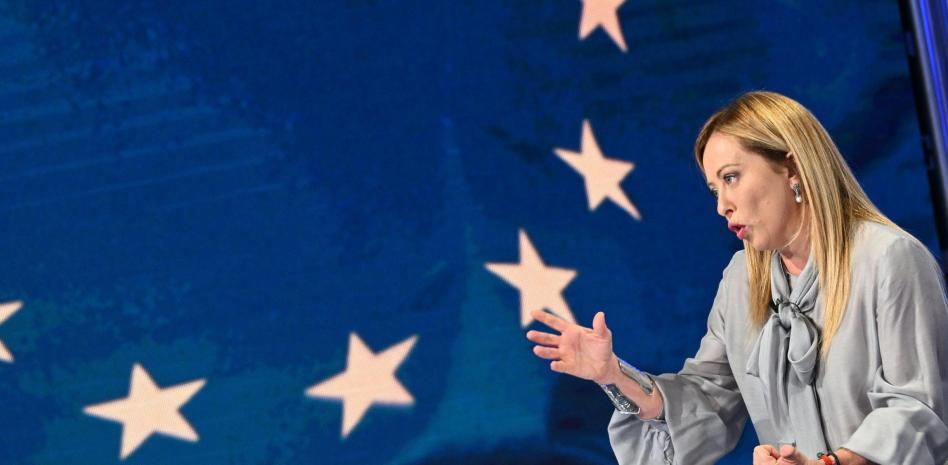 GIORGIA MELONI AND THE FUTURE OF EUROPE - 03.10.2022
GIORGIA MELONI AND THE FUTURE OF EUROPE - 03.10.2022
Jakub KOREJBA 03.10.2022 -
 THE SUMMIT OF EXPECTATIONS - 06.03.2023
THE SUMMIT OF EXPECTATIONS - 06.03.2023
Jakub KOREJBA 06.03.2023 -
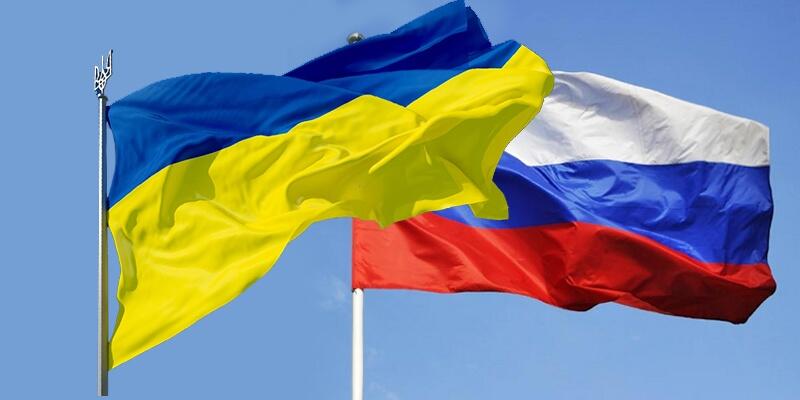 RUSSIA AND UKRAINE’S NEW RELATIONS: EVOLUTION THROUGH CONFRONTATION - 25.06.2024
RUSSIA AND UKRAINE’S NEW RELATIONS: EVOLUTION THROUGH CONFRONTATION - 25.06.2024
Jakub KOREJBA 25.06.2024 -
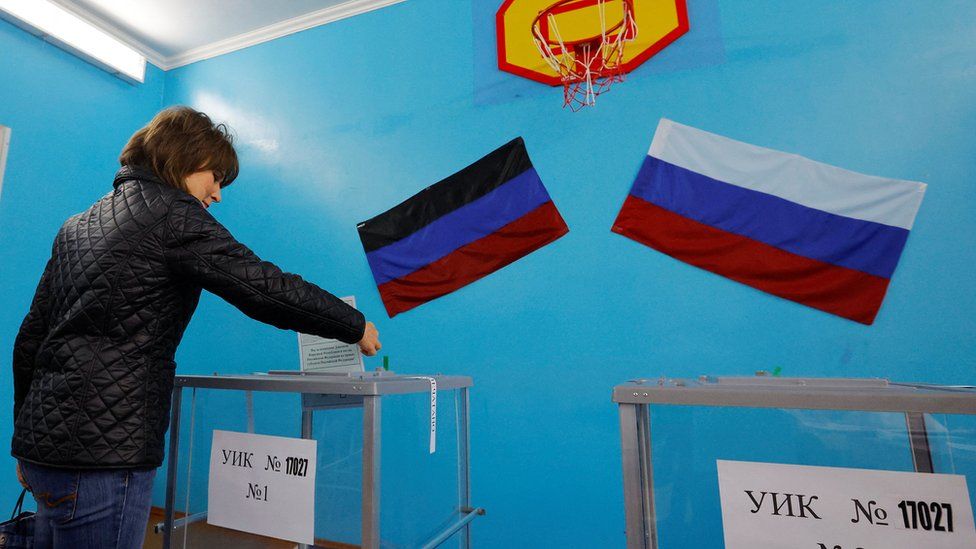 REFERENDUMS - A GAME CHANGER BETWEEN RUSSIA AND UKRAINE - 11.10.2022
REFERENDUMS - A GAME CHANGER BETWEEN RUSSIA AND UKRAINE - 11.10.2022
Jakub KOREJBA 11.10.2022 -
 THE ORGANIZATION OF TURKIC STATES – A LONG EXPECTED ALTERNATIVE FOR CENTRAL ASIA - 29.03.2024
THE ORGANIZATION OF TURKIC STATES – A LONG EXPECTED ALTERNATIVE FOR CENTRAL ASIA - 29.03.2024
Jakub KOREJBA 29.03.2024
-
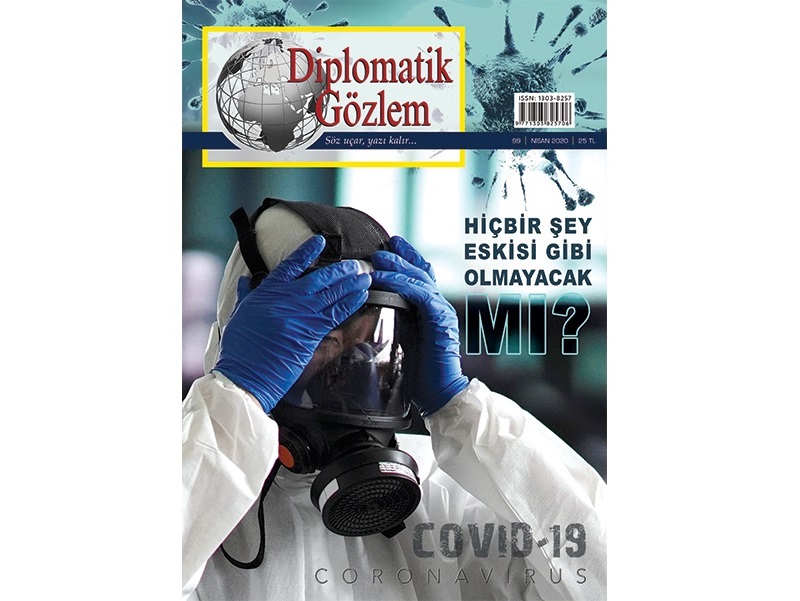 YÜZÜNCÜ YILINDA TÜRKİYE-ERMENİSTAN İLİŞKİLERİ - DİPLOMATİK GÖZLEM - NİSAN 2020
YÜZÜNCÜ YILINDA TÜRKİYE-ERMENİSTAN İLİŞKİLERİ - DİPLOMATİK GÖZLEM - NİSAN 2020
Alev KILIÇ 03.04.2020 -
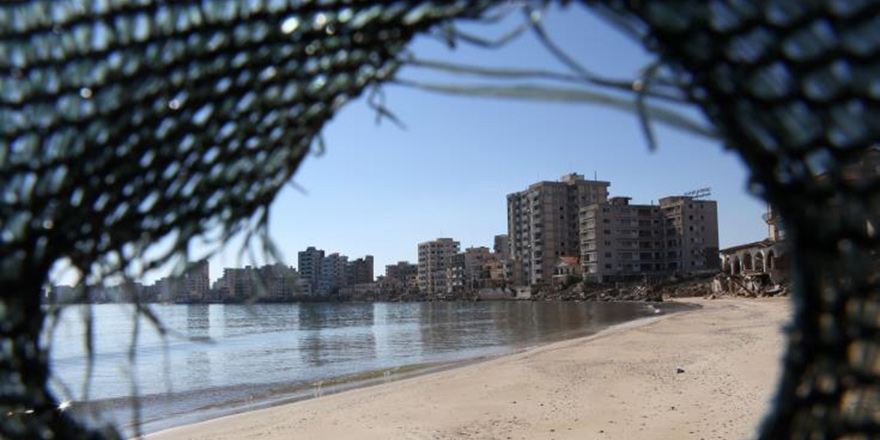 KUZEY KIBRIS TÜRK CUMHURİYETİ’NDE MARAŞ’TA YAPILACAK ENVANTER ÇALIŞMASI
KUZEY KIBRIS TÜRK CUMHURİYETİ’NDE MARAŞ’TA YAPILACAK ENVANTER ÇALIŞMASI
AVİM 05.07.2019 -
THE IMPORTANCE OF THE ECONOMIC COOPERATION ORGANIZATION (ECO)
Numan HAZAR 15.01.2013 -
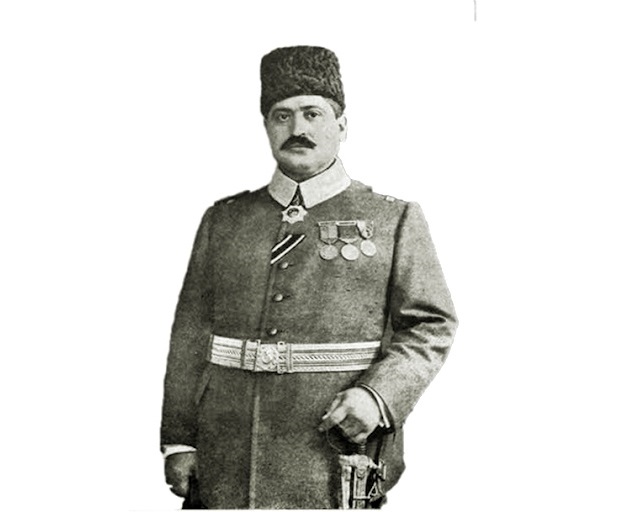 THE TALAAT PASHA QUESTION - DRPATWALSH.COM - 13.06.2020
THE TALAAT PASHA QUESTION - DRPATWALSH.COM - 13.06.2020
Pat WALSH 16.06.2020 -
GALLIPOLI AND WHY TURKS ARE ANGRY
Jeremy SALT 22.11.2013


